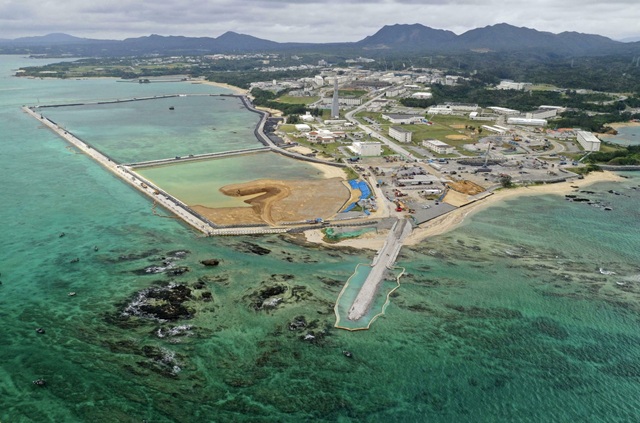Japan’s Chief Cabinet Secretary Yoshimasa Hayashi has demanded that the American military take immediate and serious action to curb the rising number of sexual assaults committed by US service members stationed on Okinawa Island. This call for change comes after a recent sexual assault incident involving a US Marine, marking the fifth such crime in just over a year.
The most recent attack occurred in November, when a US serviceman, believed to be in his 30s, was accused of raping a woman, resulting in injuries. The assault, which took place in a building located in central Okinawa, has reignited longstanding concerns among local residents about the presence of US military forces on the island, which is home to the majority of American military facilities in Japan.
Hayashi, who is responsible for managing the impact of US military activities in Okinawa, expressed his concerns during a press briefing, stating, “We will urge US forces in Japan to strengthen discipline and fully implement preventive measures.” His statement echoed the growing frustration felt by Okinawa residents who have long endured the social and environmental consequences of the US military’s presence.
The sexual assault case was swiftly reported to local police by the victim, and the alleged perpetrator has been referred to prosecutors for possible charges. However, under the Japan-US Status of Forces Agreement (SOFA), American military personnel accused of crimes in Japan are typically detained in US custody until formally charged, unless apprehended at the scene of the crime.
Okinawa Governor Denny Tamaki has been vocal in his condemnation of the recent rise in violent crimes committed by US service members. “There have been five serious and heinous crimes in the past year that have disregarded the human rights and dignity of women,” Tamaki said in a statement released Wednesday. “I believe there is a need to lodge strong protests with both the Japanese and US governments.”
The November assault marks the latest in a disturbing trend of violent incidents involving US military personnel on Okinawa. In December, a Japanese court convicted Senior Airman Brennon Washington of kidnapping and sexually assaulting a 15-year-old girl in 2023. Washington was sentenced to five years in prison with hard labor, although he has appealed the verdict. Earlier in the year, a Marine lance corporal was indicted for attempted sexual assault in June, and another Marine lance corporal was charged in September with injuring a woman during a sexual assault.
These incidents have intensified the ongoing debate over the presence of US military personnel in Okinawa. Local opposition to the US military’s presence on the island has been particularly strong in recent years, fueled by several factors including noise pollution from military aircraft, environmental damage, and the increase in violent crimes.
Adding to the anger, local media outlets revealed last year that the Japanese government had failed to report two additional sexual assault cases involving US service members, further undermining public trust. Police later claimed that these incidents were not disclosed in order to protect the privacy of the victims.
Okinawa’s historical relationship with the US military has been fraught with tension. Since the end of World War II, Okinawa has been home to US military bases, which has contributed to both economic benefits and significant social costs. Many residents feel that their island has been unfairly burdened with the negative consequences of the US military presence, including crime, environmental degradation, and social disruptions.
The latest series of sexual assaults has amplified calls for greater accountability and reform. Advocates argue that the US military must take a stronger stance in addressing the behavior of its personnel, emphasizing the need for strict discipline, thorough background checks, and preventative measures to protect local communities.


AloJapan.com